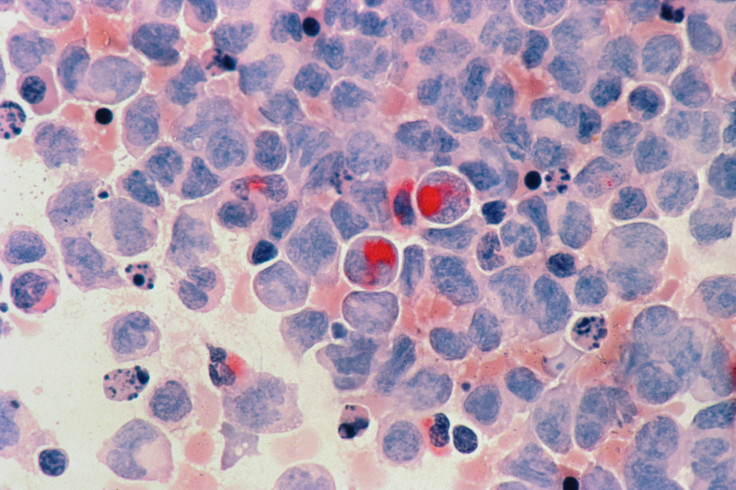Is Your Morning Cereal As Dangerous As Bacon? Experts Warn Ultra-Processed Foods Are Linked To Cancer And Dementia
Experts warn that consuming ultra-processed foods like breakfast cereals may increase the risk of cancer and dementia

That innocent-looking bowl of cereal you had for breakfast might be harbouring a dark secret. The ready meal you're planning for dinner? It could be silently sabotaging your health. Welcome to Britain's ultra-processed food (UPF) crisis—where convenience comes at a potentially deadly cost, and nearly half of everything we eat is pushing us closer to cancer wards and dementia units.
What Exactly Are Ultra-Processed Foods?
Strip away the clever marketing and colourful packaging, and ultra-processed foods (UPFs) reveal themselves for what they truly are: industrial concoctions that bear little resemblance to actual food. These factory-created products undergo extensive processing that obliterates natural nutrients whilst pumping in artificial preservatives, sweeteners, emulsifiers, colourings, and flavour enhancers.
Think of them as edible chemistry experiments designed for maximum shelf life and minimum nutrition. Your favourite breakfast cereals drowning in sugar, those convenient ready meals in the freezer, the crisps you mindlessly munch, the fizzy drinks that promise energy but deliver empty calories—they're all part of this ultra-processed parade that's colonised our cupboards and fridges.
Also, highly sweetened breakfast cereals, ready-to-eat meals, packaged snacks, sugary soft drinks, and fast food items that are widely available but often nutritionally poor compared to minimally processed or whole foods.
The Devastating Cancer Connection

The numbers are stark enough to make you reconsider that next trip down the ready meal aisle. Research from Imperial College London has uncovered a chilling pattern: for every 10% increase in ultra-processed food consumption, overall cancer risk climbs by 2%. But here's where it gets truly alarming—ovarian cancer risk skyrockets by a staggering 19%.
This isn't isolated scaremongering. A comprehensive review in The Lancet has confirmed these associations, linking UPF consumption to both cancer incidence and mortality across multiple cancer types. The evidence is mounting faster than we can ignore it.
Your Brain Under Attack: The Dementia Bombshell
Perhaps even more terrifying than the cancer risk is what ultra-processed foods are doing to our minds. Research published in the American Academy of Neurology's journal delivers a knockout blow: a 10% increase in ultra-processed food consumption translates to a 25% higher risk of developing dementia.
The assault on our cognitive function doesn't stop there. The Journal of Prevention of Alzheimer's Disease reports that individuals aged 68 and older face a 13% greater risk of Alzheimer's disease with each additional daily serving of UPFs. Meanwhile, data from JAMA Neurology shows that those consuming more UPFs perform significantly worse on cognitive tests.
Scientists believe the cocktail of additives, excessive sugars, and unhealthy fats triggers inflammation and oxidative stress in the brain, accelerating neurodegeneration. Simultaneously, these foods deprive us of brain-protecting nutrients, such as antioxidants and omega-3 fatty acids. It's a double assault—poisoning whilst starving our grey matter.
This effect is concerning not only for older adults but also for younger people, as prolonged UPF consumption may accelerate brain ageing and impair development. With nearly a million people living with dementia in the UK, and numbers rising, these findings highlight the importance of reducing UPF intake to protect brain health.
The UK's Consumption Patterns

The UK is among the highest consumers of ultra-processed foods (UPFs) in Europe, which account for approximately half of an average adult's daily calories, according to the BBC.
This trend is even stronger in children, whose diets often include sugary cereals, snacks, and ready meals. Studies link high UPF consumption to rising obesity and type 2 diabetes rates in the UK.
Research from Imperial College London found that greater UPF intake increases the risks of metabolic disorders and excessive weight gain in both adults and children.
Factors such as busy lifestyles, affordability, and heavy marketing contribute to widespread UPF reliance. Public health efforts, such as the UK's Eatwell Guide, encourage reducing UPFs and choosing fresh, whole foods to improve health outcomes. However, convenience often drives consumer choices, making dietary changes challenging.
The Full Horror: Complete Health Implications
Beyond cancer and dementia lurks a rogues' gallery of health disasters. Ultra-processed foods, laden with sugar, salt, and unhealthy fats, act as catalysts for obesity, type 2 diabetes, and heart disease. The additives and preservatives wreak havoc on gut health, triggering inflammation that contributes to chronic illness.
These nutritional impostors leave us simultaneously overfed and undernourished. Stripped of fibre, vitamins, and minerals, they compromise immune function whilst feeding disease. It's a slow-motion health catastrophe playing out in kitchens across Britain.
Health experts recommend limiting UPFs and focusing on whole, minimally processed foods to reduce these health risks and support long-term well-being.
Fighting Back: Expert Recommendations For Survival
Health experts strongly advise reducing the consumption of ultra-processed foods (UPFs) to mitigate their adverse health effects. Key guidelines include:
- Prioritise Whole Foods: Focus on fresh fruits, vegetables, whole grains, lean proteins, and healthy fats. These foods provide essential nutrients and antioxidants that support overall health and protect against chronic diseases.
- Read Labels Carefully: When purchasing packaged products, carefully review the ingredient lists for additives, artificial sweeteners, preservatives, and high levels of sugar or salt. Choosing products with fewer artificial ingredients helps reduce exposure to harmful substances.
- Limit Sugary and Salty Snacks: Many UPFs are high in added sugars and salt, which contribute to obesity, hypertension, and cardiovascular disease. Reducing intake of these snacks can lower health risks.
- Cook More at Home: Preparing meals from scratch allows better control over ingredients and reduces reliance on heavily processed convenience foods.
- Follow Official Dietary Guidelines: The UK's Eatwell Guide recommends limiting foods high in saturated fat, salt, and sugar, while increasing intake of fibre-rich foods. Adhering to such guidelines can help maintain a balanced and healthy diet.
By making these changes, individuals can significantly lower their risk of cancer, dementia, and other chronic conditions linked to ultra-processed foods.
With nearly a million Britons already living with dementia and numbers climbing relentlessly, these aren't just recommendations—they're a call to arms.
The choice is stark: continue down the ultra-processed path towards disease, or reclaim our health one meal at a time.
The evidence is clear, the warnings are loud, and the time for action is now.
© Copyright IBTimes 2025. All rights reserved.





















